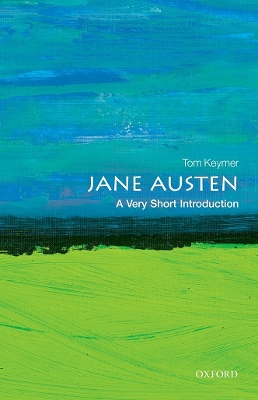Jane Austen wrote six of the best-loved novels in the English language, as well as a smaller corpus of works unpublished in her day, including three volumes of witty, non-realist juvenilia and the innovative, unfinished Sanditon. She pioneered new techniques for representing voices, minds, and hearts in narrative prose, and was a penetrating satirist of social tensions and trends in an era dominated by the French Revolution, the Napoleonic Wars, and the socio-economic disruptions entailed by them. Yet Austen struggled for many years to break into print, and even as she became a published author in the last years of her relatively short life, reading tastes and book-trade expectations constrained as much as they enabled her literary career. This Very Short introduction explores the major themes of Austen criticism through close analysis of her major and minor works, with particular emphasis on the literary, social, and political backgrounds from which the novels emerge, and with which they engage. Thomas Keymer combines critical introductions to each of Austen's six major novels with an exploration of the key themes in her works, from national identity to narrative technique. The Austen who emerges is a writer shaped by the literary experiments and socio-political debates of the revolution decade, drawn in her maturity to a fundamentally conservative vision of social harmony, yet forever complicating this vision through the disruptive ironies and satirical energies of her prose.
BROWSE
Jane Austen: A Very Short Introduction
Author: Tom Keymer
Paperback |
Jane Austen is one of the most widely-read novelists in the English language, and one of very few pre-Victorian writers to have a large popular following. This book situates Austen in the literary and historical context of her time, and combines critical introductions to each of her six major novels with the exploration of key themes of her work. (176 pages)
€11.00
ISBN: 9780198725954 | Publisher: Oxford University Press (UK) | Published: 2022
Category: Reading and writers, Very Short Introductions


